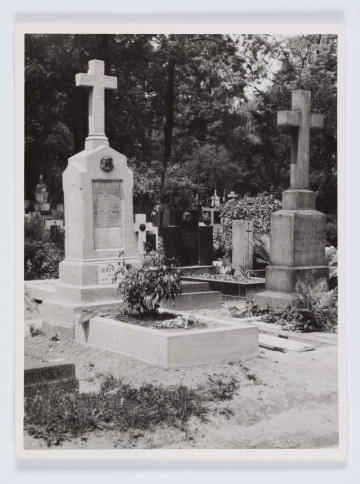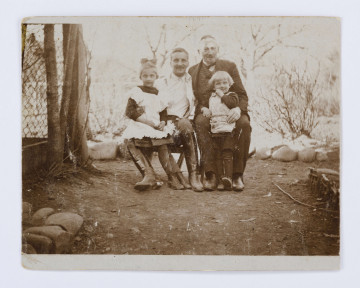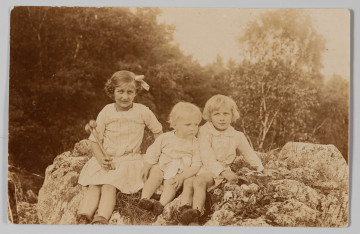
Tomb of the Pol family at the Rakowicki Cemetery in Kraków
1970 — 1979
National Museum in Lublin
Part of the collection: Documents, prints, memorabilia and photographs related to Wincenty Pol and his family
The author of the letter, Seweryn Goszczyński (1801-1876), was a poet and publicist, as well as a radical socio-political activist. He was born into a poor noble family in Podolia. As an ardent Polish patriot with a democratic orientation, he was active in Warsaw, Ukraine, Galicia and in exile, participated in the November Rising (among other things, taking part in the attack on the Belvedere), and was a member of several secret societies including the founder of the Union of Twenty-one (which Wincenty Pol also joined). In 1838, he emigrated again to France. There he changed his views, joined the Towiańczycy and almost stopped his literary activity. He returned to Lviv in 1872 (the year of Wincenty Pol's death) where he died a few years later.
From the address of the letter's sender it appears that he lived on the outskirts of the French capital, in what at that time was the not very interesting working-class 12th district, called Reuilly (in the south-east of the city). The date of 12 December 1868, visible on the correspondence, means that Wincenty Pol had been living in Kraków again for a year (at 26 Szpitalna Street) and had already undergone cataract operations, as the result of which he lost his sight.
The author assures us of his friendship, brotherly love and respect for the addressee a man he met in Galicia, when he was young, and with whom he travelled from Lviv to Krakow in 1834, their political views later diverging for many years. Goszczyński sends his sympathy and consolation to Pol. He also refers to his request to send a poem to an anthology of contemporary Polish poets which he is planning. He neither refuses nor promises to do so, and in the end he did not send any poems (the anthology did not appear, either).
What was the further fate of this letter? Well, after Wincenty Pol's death, by way of his children it ended up in the hands of Władysław Leon Antoniewicz (1877-1918), a regionalist from Krosno and would-be biographer of the poet. At the threshold of the new millennium, it was acquired by our Museum (together with Antoniewicz's legacy) in one of Krakow's antique shops.
Author / creator
Dimensions
cały obiekt: height: 13 cm, width: 20,3 cm
Object type
manuscript
Technique
manual script
Material
paper, ink
Creation time / dating
Creation / finding place
Owner
The National Museum in Lublin
Identification number
Location / status

1970 — 1979
National Museum in Lublin

1901 — 1925
National Museum in Lublin

1901 — 1925
National Museum in Lublin
DISCOVER this TOPIC
Castle Museum in Łańcut
DISCOVER this PATH
Educational path